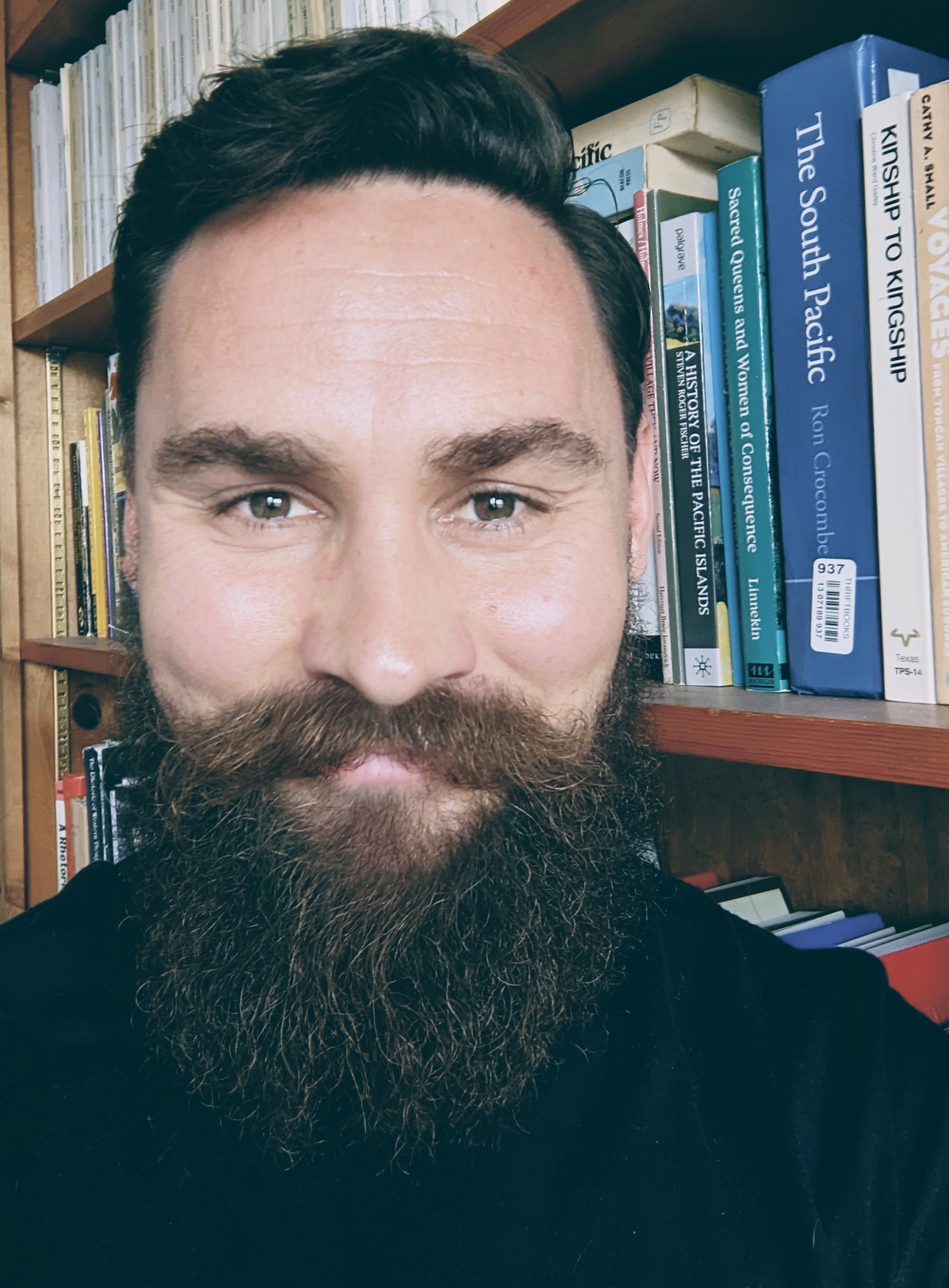Trevor J. Durbin, PhD
 |
Associate Professor 204 Waters Hall, Kansas State University Manhattan, KS 66506 Email: tdurbin@ksu.edu |
|
Trevor J. Durbin is broadly trained in the biophysical and human sciences. He holds a BS in biochemistry with honors in Great Books from Pacific Union College (2007) and a PhD in cultural anthropology from Rice University (2015), where he focused on environmental studies, medical anthropology, and science and technology studies. In his applied research, Dr. Durbin works closely with diverse, multidisciplinary teams to identify, clarify, and solve pressing problems in agriculture, healthcare, safety, and environmental policy. He has worked with the Secretariat of the Pacific Regional Environmental Program (Apia, Samoa), the Cook Islands Environment Service (Rarotonga), and Conservation International Pacific Islands Program. He is currently an external investigator for the National Children’s Center for Rural and Agricultural Health and Safety (NCCRAHS) and is an ethnographic and qualitative methods consultant for the Human Factors Team at Children’s Mercy Hospital in Kansas City. This applied work serves as a vehicle for methods training and publishing with undergraduate anthropology students. In addition to his applied projects, Dr. Durbin maintains a program of concept-driven writing and primary research. A long standing concern revolves around how communities (from extended families to nation-states) establish and maintain legitimate authority, especially in times of uncertainty and change. He has published work on the positive role of scandal in nation building, the interactions of charismatic authority and statecraft, and the complementarity between conservative and progressive values in the maintenance of family tradition. He is currently working on two public-facing writing projects. The first draws on an anthropological perspective to argue for the importance of living tradition in education and parenting. The second explores the limits of academic anthropology in thinking about anthropos (the human). Finally, Dr. Durbin spends much of his time teaching, and thinking about teaching, undergraduates. His pedagogical reflections comprise a third strand of intellectual products . At K-State, he teaches several courses, including Introduction to Medical Anthropology and Global Health, Narrative Medicine, the Pre-Med CAT Community, Environmental Anthropology, and Introduction to Cultural Anthropology. He is the faculty advisor for the Medical Missions Club, Partners in Health: Engage, and Anthropology Club. He leads K-State’s certificate in Global Health, Medicine, and Society. To learn more about Dr. Durbin's work download his Curriculum Vitae. Selected PublicationsApplied Anthropology Refereed ArticlesJakob A. Hanschu, Casper G. Bendixsen, Kyle Koshalek, Ryan T. Klataske, Trevor J. Durbin. (2024) “Risk Evaluations of Child-livestock Interactions by Dairy Farm Parents.” Journal of Rural Studies, 108, 103285. Trevor J. Durbin, Amber A. Neely, Casper G. Bendixsen, and Sarah Strauss. (2024) “The Big Lie: Discursive Risk Analysis and Wildland Firefighter Safety in the Western United States.” Environmental Research: Health, 2, 015002. Ryan T. Klataske, Trevor J. Durbin, Kathrine L. Barnes, Kyle Koshalek, Casper G. Bendixsen. (2023) “Parent Perspectives on the Benefits and Risks of Child-Livestock Interactions.” Frontiers in Public Health, 11, 164. Trevor J. Durbin, Ryan Klataske, and Casper G. Bendixsen. (2023) “Transitional Workplaces: Alt-Meat and Beef Producer Health and Safety in the Kansas Flint Hills.” Journal of Agromedicine, 28(1), 61-68. Danielle Jensen-Ryan, Rachael Budowle, Sarah Struss, Trevor J. Durbin, Tyler A. Beeton, Kathleen A. Galvin. (2019) “A Cultural Consensus of Fire and Futility: Harvesting Beetle-Kill for Wood-Based Bioenergy in Wyoming and Colorado.” Energy Research & Social Science, 58, 101272. Trevor J. Durbin, Casper Bendixsen, Daniel Jensen-Ryan, Abigail Molzer, and Sarah Strauss. (2019) “The Dangerous Middle: Situational Awareness and Worker Perception of Beetle Kill.” Journal of Agromedicine, 24(2), 157-166. Authority and Community Refereed ArticlesTrevor J. Durbin. (2023) “Charisma Work, Microstates, and the Production of Authoritative Marine Space in Oceania.” Anthropology Matters, 21(1). Casper Bendixsen, Trevor J. Durbin, and Jakob Hanschu. (2020) “‘Progressive Ranching’ and Wrangling the Wind as Ecocultural Identity Maintenance in the Anthropocene” in the Routledge Handbook of Ecocultural Identity. (pp. 164-178.) Routledge. Trevor J. Durbin (2018) “‘What now, Fishgate?’: Scandal, Marae Moana, and Nation-Making in the Cook Islands.” The Contemporary Pacific, 30(1), 1-31. Pedagogy (refereed and non-refereed)“Argonauts of Attention: A Return of Ethnographic Research to its Literary Roots.” (2024) Paper presented to the Society for Applied Anthropology (SfAA) Annual Meeting, Santa Fe, NM (March 26-30). Selected for the SfAA Podcast Project: https://www.podbean.com/ew/pb-6fajt-1685693 Trevor J. Durbin. (2023) “Teaching to Cultivate a Better Anthropocene: Metaphor Work and the Conceptual Development of an Environmental Anthropology Course.” Journal of Sustainability Education, 28. “Teaching to Cultivate a Better Anthropocene: From Failure to Nurture.” (2022) Invited talk to the Open Learning & Teaching Collaborative, Plymouth State University, Plymouth, NH (October 13) Talk Recording: https://www.youtube.com/watch?v=y1oBhAuuGXs “Loving, Eating, Teaching, and Wayfaring in the Anthropocene.” (2015) Engagement: A blog published by the Anthropology and Environment Society, https://aesengagement.wordpress.com/2015/10/21/loving-eating-teaching-and-wayfaring-in-the-anthropocene/ |
|